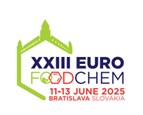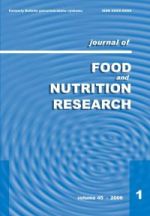Vedecký časopis - archív
Journal of Food and Nutrition Research
Súhrny čísla 3 / 2010
BIELIKOVÁ, M. – PANGALLO, D. – TURŇA, J.
Polymerase chain reaction – restriction fragment length polymorphism (PCR-RFLP) as a molecular discrimination tool for raw and heat-treated game and domestic animal meats
Journal of Food and Nutrition Research, 49, 2010, č. 3, s. 134-139
Domenico Pangallo, Institute of Molecular Biology, Slovak Academy of Sciences, Dubravska cesta 21, SK – 845 51 Bratislava, Slovakia. E-mail: domenico.pangallo@savba.sk
Súhrn: Evaluation of two polymerase chain reaction - restriction fragment length polymorphism (PCR-RFLP) methods for the identification of different kinds of meat samples was performed. Both PCR methods amplified a region of the gene encoding for the subunit 12S of mitochondrial ribosomal RNA. The first method amplified an approx. 714 bp long DNA fragment. The second PCR-RFLP method was newly developed and it was able to amplify a smaller DNA fragment (around 269 bp). The PCR products of both methods were digested with two different restrictases (AseI and FatI). The two methods allowed a clear discrimination of all 87 meat samples of different animal origin: beef (Bos taurus), goat (Capra hircus), sheep (Ovis aries), pork (Sus scrofa domestica or Sus scrofa fera), red deer (Cervus elaphus), roe deer (Capreolus capreolus) and fallow deer (Dama dama). The newly developed PCR assay permitted the identification of heat-treated meat samples.
Kľúčové slová: species identification; PCR-RFLP; 12S rRNA; meat
Na stiahnutie:
jfnr-2010-3-p134-139.pdf (PDF, 183.64 Kb, 8847x)










